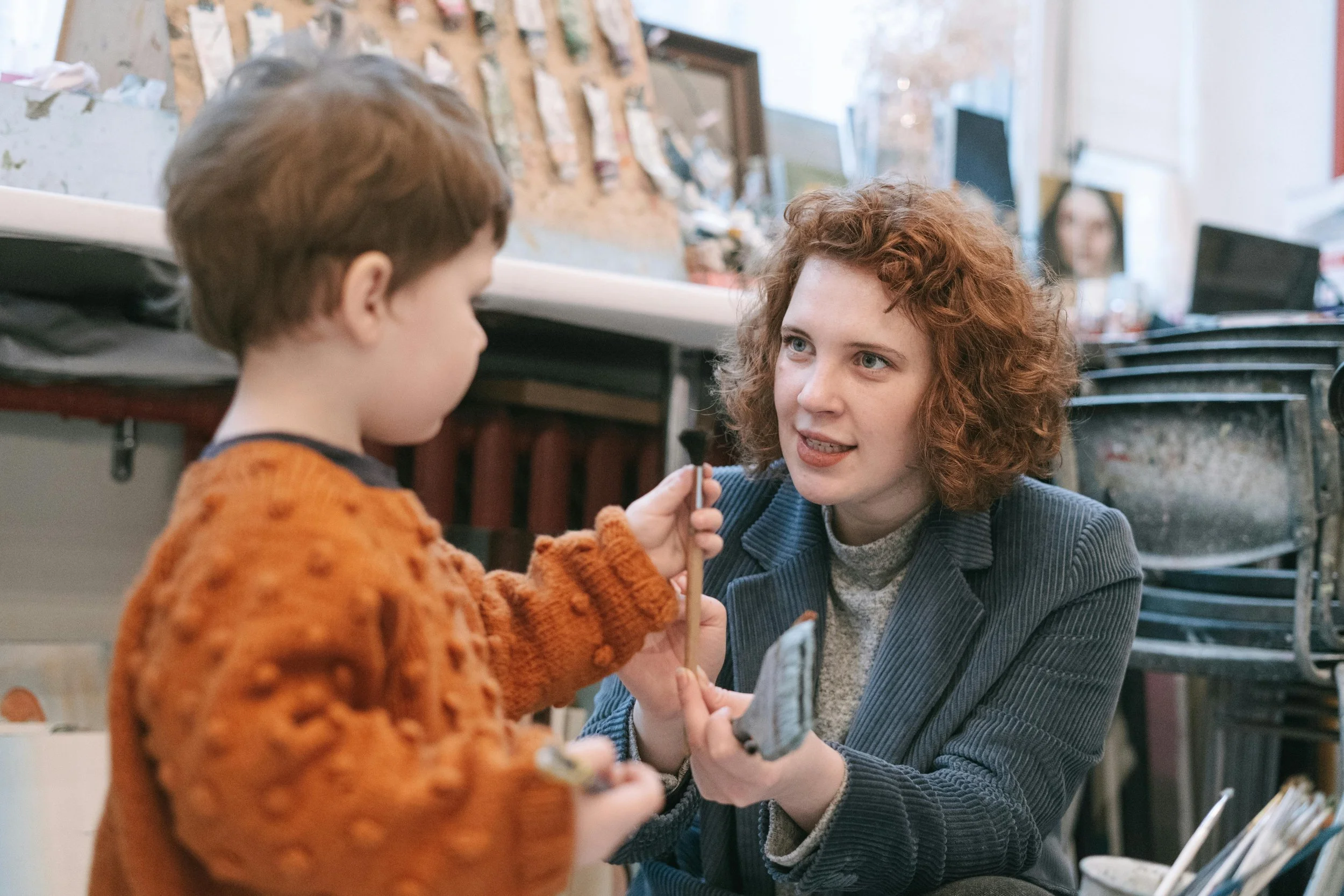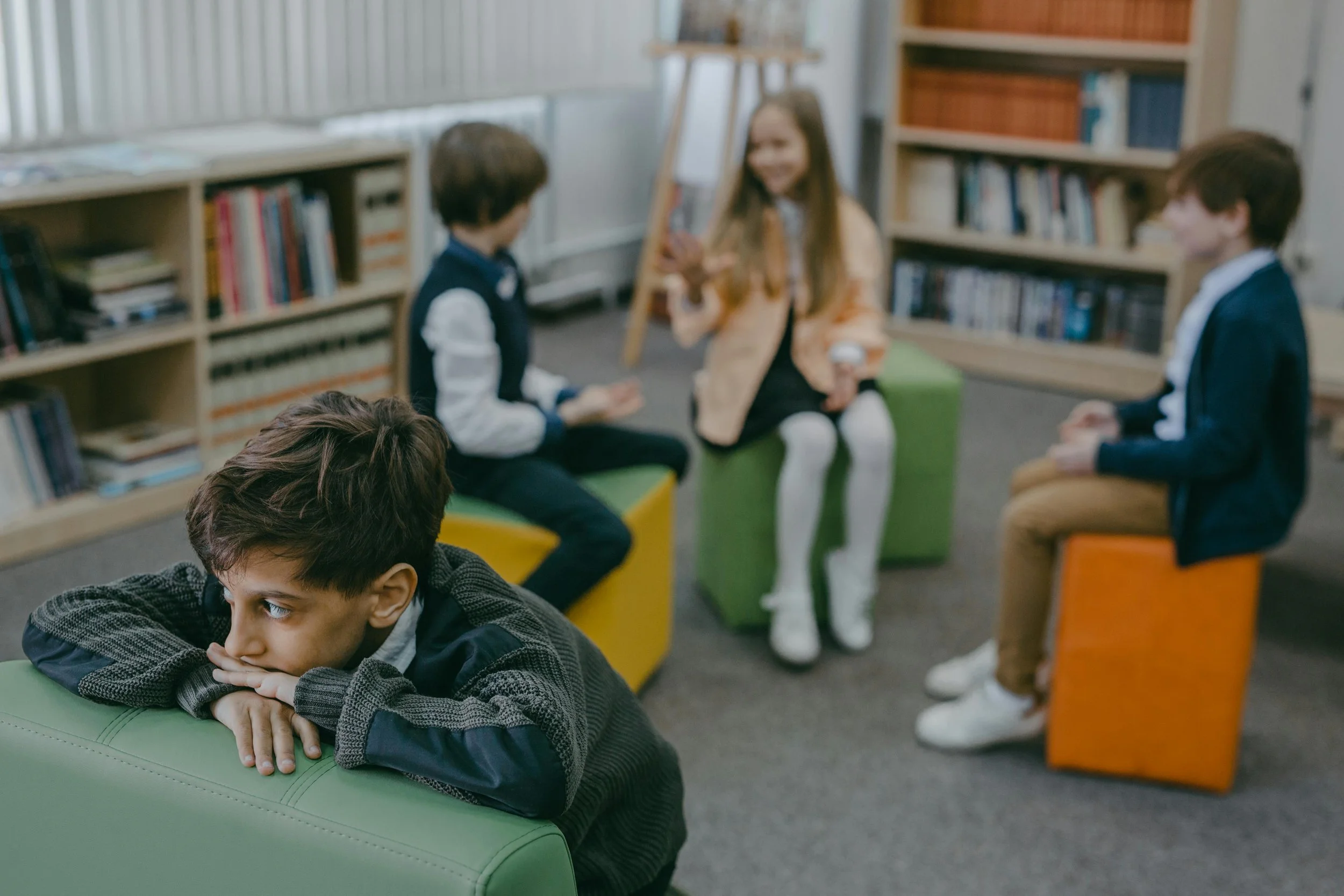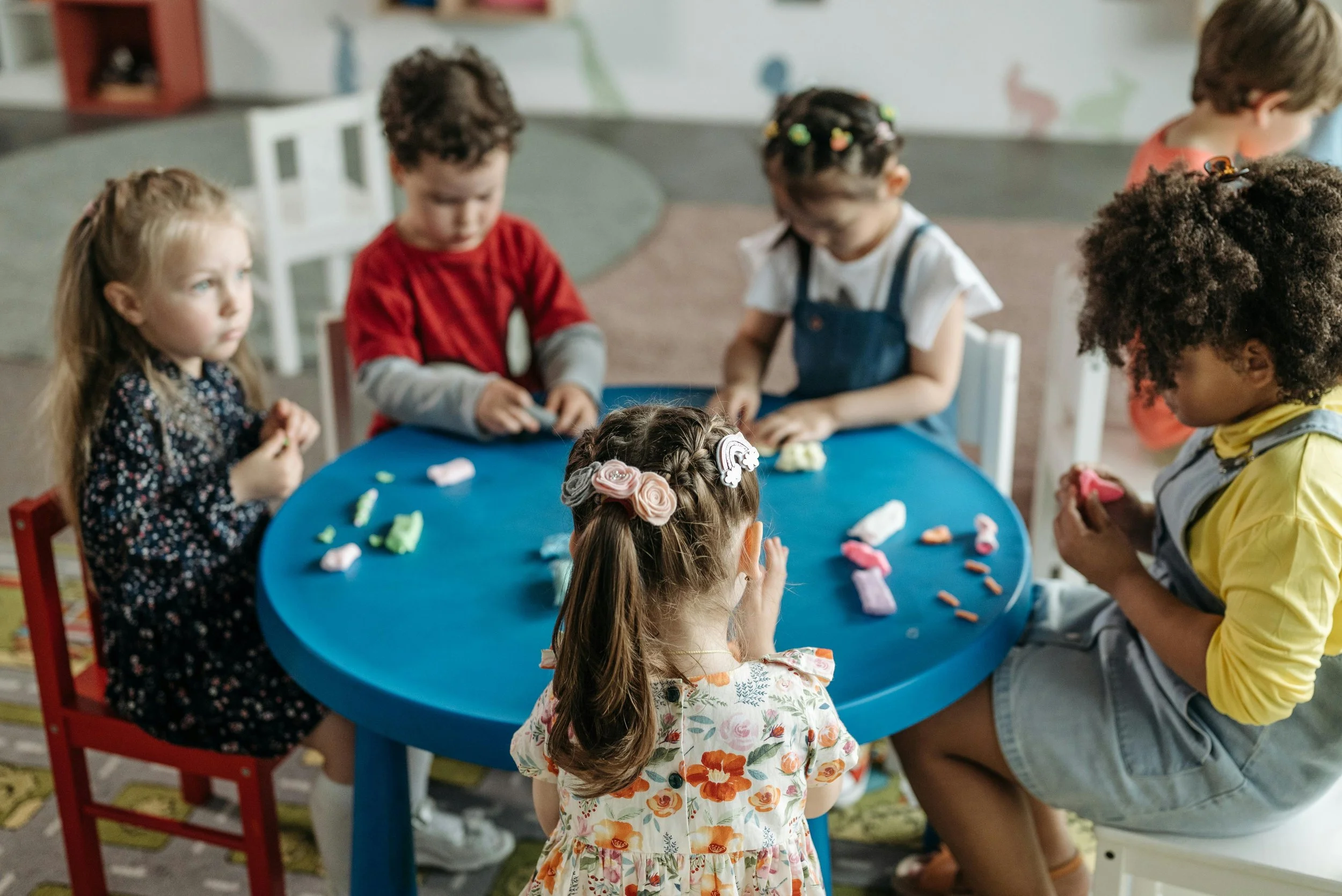Watching Your Child Get Rejected Never Gets Easier: A Parent's Guide to Supporting Social Development
It happens in a moment that feels like slow motion. You're picking up your child from school, and you see it, the group of kids walking away as your child stands there alone. Or maybe it's more direct: your child comes home and announces, "No one wants to play with me."
Your heart breaks. Every protective instinct fires at once. You want to march over to that school, arrange playdates, call other parents, or somehow engineer a social life for your child that doesn't include rejection or disappointment.
But here’s what decades of work in child social development has taught me: the instinct to fix their social problems might actually interfere with one of the most important learning processes of childhood, developing the confidence, problem-solving skills, and resilience to handle social ups and downs.
Understanding Social Development: Why Struggles Matter for Supporting Social Growth
After three decades of working with children and families, I've learned something that might surprise you: social struggles aren't a problem to be solved. They're how children learn to navigate the complex world of human relationships.
This doesn't make it any easier to watch your child experience social pain. But understanding the developmental purpose of these challenges can help you respond in ways that actually build their long-term social competence and friendship skills.
Why Social Struggles Are An Important Part of Child Social Development
It’s hard to watch your child feel left out, excluded, or rejected. As parents, our instinct is often to jump in and fix it, soften the blow, or protect them from pain. But here’s the truth most of us weren’t told:
Social struggles aren’t just common, they’re an important part of how kids grow.
These moments, as uncomfortable as they are, can actually help build some of the most valuable life skills our kids will ever need:
Building Resilience: Every time a child experiences social disappointment and recovers, they learn that difficult feelings are temporary and manageable.
Developing Empathy: Children who experience rejection often become more sensitive to others who are struggling socially.
Learning Problem-Solving: Social conflicts require kids to think creatively about solutions, compromise, and repair relationships.
Identity Formation: Through various social experiences, children learn about their own preferences, values, and social style.
Building Authentic Connections: Children who learn to navigate social challenges often develop deeper, more genuine friendships than those who never face difficulties.
The Social Skills Gap: What We Expect vs. What We Teach Kids
One of the biggest challenges facing children today is that we expect them to navigate incredibly sophisticated social situations without explicitly teaching them the skills they need.
Skills Most Children Are Never Directly Taught:
Joining Ongoing Activities: How to approach a group that's already engaged, read social cues, and join appropriately.
Handling Social Rejection: Understanding that "no" doesn't always mean "never" and learning not to take rejection personally.
Managing Social Conflicts: Expressing disagreement without aggression, knowing when to compromise, and understanding when to seek help.
Inclusive Behavior: Noticing when someone is being left out, making space for others, and speaking up against unkindness.
Communication Skills: Expressing needs clearly, reading body language, and understanding timing.
When a child seems socially savvy, it’s rarely magic, it’s often because they've had the chance to practice, make mistakes, repair, and try again with guidance. These are learnable skills, and every child deserves that same opportunity.
Reframing Your Response to Social Pain
It’s instinctive to want to protect your child from social pain. But how we respond in those raw, vulnerable moments can either build our child’s confidence, or chip away at it without meaning to. Here are a few common responses that often come from a place of love, but may not have the effect we hope for.
Here are Some Supportive Approaches:
Validate Their Experience: "That sounds really disappointing. Tell me what happened." Let them share the full story before offering any guidance or solutions.
Normalize Social Challenges: "Sometimes it takes time to find people who appreciate the same things you do." Help them understand that not everyone will be their friend, and that's completely normal.
Remind Them of Their Resilience: "You've handled tough situations before. Remember when..." Reference specific times they've overcome social challenges without dismissing their current pain.
Focus on Their Agency: "What do you think might help in this situation?" Encourage them to brainstorm solutions rather than immediately providing answers.
If you’ve ever been stuck for the right words when your child is in the middle of a friendship drama, you’re not alone. Our Scripts for When Friendship Gets Messy guide offers simple, thoughtful phrases you can use in the moment, ones that validate your child’s feelings while helping them build the resilience and problem-solving skills that are at the heart of healthy social development.
Navigating Different Types of Social Challenges in Kids
The Friendship Drama Cycle
If your child has ever declared, “We’re not friends anymore!” on a Tuesday and then happily sat next to that same friend at lunch on Wednesday, you’re not alone.
Elementary school friendships often follow a predictable (and sometimes exhausting!) pattern:
A burst of intense connection and an “exclusive” best friendship
A conflict, slight, or misunderstanding, sometimes small, sometimes big
A dramatic declaration: “We’re done. We’re not friends anymore!”
And then, a reconciliation like nothing ever happened
These ups and downs are completely developmentally normal. Kids are still learning the rules of social engagement, emotional regulation, and how to work through conflict. And they’re practicing all of it in real time, with real peers, real feelings, and real stumbles.
How to Support Your Child Through Friendship Drama
As parents, it’s easy to get pulled into the intensity of it all, especially if we’re worried our child is being mistreated or hurt. But how we respond matters. These moments are rich opportunities to help our kids grow socially and emotionally.
Here’s how you can help:
Stay calm and grounded
It’s tempting to match your child’s energy, especially when they’re upset. But your calm presence helps them co-regulate and signals that this moment is manageable.
Listen first, without rushing to fix
Validate their feelings. You don’t need to solve it or offer advice right away. Just being heard is often what they need most in that moment.
Gently normalize friendship bumps
Let your child know it’s normal to have ups and downs in relationships. Conflict doesn’t always mean the friendship is over, and learning how to repair is a key skill.
Model healthy conflict resolution
Kids are always watching. When you model respectful disagreement, apologies, and repair in your own relationships, you give them a roadmap for their own.
When Your Child Struggles with Aggression
It’s never easy to hear that your child hurt someone else’s feelings. Whether they grabbed a toy, made an unkind comment, or lashed out physically, it can bring up a flood of emotions, guilt, embarrassment, even defensiveness. You might find yourself thinking, "That’s not who my child is..." or "Where did they learn that?"
But here’s the truth:
All kids, yes, even kind, compassionate ones, will occasionally get it wrong in social situations. That doesn’t mean you’ve failed as a parent or that your child is destined to be the “mean kid.” It means they’re still learning.
The goal in these moments isn’t punishment, it’s growth. We want to help kids understand what happened, take responsibility, and learn how to make a different choice next time.
Here’s how to respond in a way that teaches and repairs:
Avoid shame-based responses
It’s easy to blurt out, “How could you be so mean?” or “You should know better!” when we’re upset. But shame tends to shut kids down or make them defensive. Instead, try curiosity:
“Help me understand what was happening for you when that happened.”
“What were you feeling in that moment?”
This opens the door for reflection, not resistance.
Focus on impact and empathy
Rather than lecturing, guide your child to think about how their actions affected someone else:
“How do you think [friend’s name] felt when that happened?”
“What do you think you could do differently next time?”
“Is there something you’d like to do to make things right?”
This helps build emotional awareness and a sense of responsibility, not just rule-following.
Address underlying needs
Sometimes unkind or aggressive behavior isn’t about malice, it’s about a dysregulated nervous system. Maybe your child was overwhelmed by noise, frustrated by a transition, or feeling excluded themselves.
Instead of asking, “What’s wrong with you?” ask,
“What might have made that hard for you?”
“Were you feeling left out? Tired? Angry? Embarrassed?”
You’re not excusing the behavior, you’re understanding the why behind it so you can support better outcomes moving forward.
Helping your child grow through these moments doesn’t mean ignoring the impact of their actions. It means responding with intention, balancing accountability with empathy, and discipline with connection.
Supporting the Solitary Child
Some children consistently prefer independent activities over group play. This isn't automatically a problem, but it's important to understand whether they're alone by choice or circumstance.
Signs of Healthy Solitary Play:
Child seems content and engaged in independent activities
They have at least one or two friendships, even if not highly social
They can interact appropriately with others when needed
They don't express loneliness or desire for more friends
Signs That May Need Support:
Child expresses wanting friends but doesn't know how to make them
They avoid social situations due to anxiety or fear
Previous negative social experiences have made them hesitant to try again
They seem genuinely lonely or sad about their social situation
Building Social Skills for Kids at Home
Social skills aren’t just something kids “pick up.” They’re learned, just like reading, riding a bike, or tying shoes. And just like those skills, they improve with practice, patience, and encouragement. Home is the perfect low-pressure place for that kind of learning to happen.
The Practice Approach
Choose one or two skills to focus on at a time
Think small and specific. Is your child struggling to join a group? Handle disagreements without shutting down? Ask to be included? Pick one or two skills and start there, less is more.
Practice during calm, connected moments
Avoid trying to teach right after a social misstep, when emotions are high, the learning window is closed. Instead, look for relaxed, playful moments when your child is open and regulated (e.g., during dinner, playtime, or bedtime routines).
Use role-play to build comfort and confidence
Keep it fun and low-pressure. Take turns pretending to be the “new kid,” the “left-out friend,” or the “one who wants to join the game.” Use stuffed animals or toys if that feels easier. Let your child experiment and explore how different responses feel in their body.
Make it safe to mess up
Remind your child that learning social skills is like learning any new skill it takes time and mistakes are part of the process. Normalize awkward moments and celebrate the courage it takes to try.
Celebrate small wins
Catch your child in the act of using a skill, even if it’s just saying “hi” to a peer or walking away from a conflict. A simple, “I noticed you handled that really kindly” goes a long way in reinforcing progress.
Creating Social Opportunities
Practice is powerful, but real-world experiences matter too. The key is to set your child up for success by creating social opportunities that feel safe, enjoyable, and well-matched to their temperament.
Thoughtful, Child-Centered Planning
Quality over quantity
One or two good-fit friends are more valuable than a large group where your child feels lost. Look for peers who are kind, flexible, and share similar energy levels or play styles.
Choose shared-interest activities
Kids connect more easily when there’s something to do and talk about. Whether it’s Legos, art, animals, or Pokémon, shared interests give natural entry points for connection.
Try structured activities
Free play can be overwhelming, especially for kids still developing social confidence. Playdates with a built-in activity, like baking, a nature walk, or a board game, can lower anxiety and support interaction.
Follow their lead
Notice what lights your child up and what drains them. Some kids thrive in one-on-one settings, others do better with a sibling buffer. Some enjoy fast-paced playgrounds, others prefer quiet crafting. Let their preferences guide your plans.
Teaching Empathy to Children and Fostering Inclusion
One of the most valuable parts of social-emotional learning for kids is how to be inclusive and kind to others who may be struggling socially.
Practical Ways to Foster Inclusion:
Model Inclusive Behavior: Include others in your own social interactions and talk about why this matters.
Discuss Perspective-Taking: "How do you think the new student felt when no one talked to them at lunch?"
Practice Inclusion Skills: Role-play scenarios like inviting someone to join a game or sitting with someone who's eating alone.
Celebrate Inclusive Behavior: Notice and praise your child when they include others or show kindness to peers who are struggling.
Share Your Own Experiences: Talk about times when you felt left out and what would have helped, or times when someone's kindness made a difference to you.
Supporting Yourself as a Parent
Your child's social struggles can trigger intense emotions in you, especially if you have your own difficult memories of childhood rejection or social challenges.
Managing Your Own Reactions:
Recognize Your Triggers: Notice when your response to your child's social situation seems disproportionate to the actual event.
Separate Your Experience from Theirs: Your child's social journey may be very different from your own childhood experience.
Focus on Their Strengths: Remember the social skills and positive qualities your child already possesses.
Seek Support When Needed: If your child's social challenges are causing significant family stress, consider talking to a professional.
Practice Self-Care: Take care of your own emotional needs so you can be a calm, supportive presence for your child.
When to Seek Professional Help
While most childhood social struggles are normal and temporary, there are times when additional support may be helpful:
Consider Professional Support If:
Social difficulties are significantly impacting your child's daily functioning
Your child shows signs of depression or anxiety related to social situations
Aggressive or concerning behavior toward others is persistent
Your child is being bullied or consistently excluded
Social challenges are causing significant family stress
Your child has additional challenges (ADHD, autism, anxiety) that may be impacting social development
The Long View: Child Social Development Is a Lifelong Process
Your child’s current social challenges are not a life sentence, they are part of child social development. With patience, encouragement, and opportunities to practice, your child can develop the resilience, empathy, and problem-solving skills that create strong, lasting friendships.
What Matters Most:
Self-Worth: Children who develop a secure sense of their own value are better equipped to handle social ups and downs.
Resilience: Learning to bounce back from social disappointments is more important than avoiding them altogether.
Empathy: Children who experience social challenges often develop greater sensitivity to others' feelings.
Authenticity: Learning to be genuine in relationships is more valuable than being popular.
Problem-Solving Skills: The ability to navigate social conflicts and challenges serves children throughout their lives.
Creating a Supportive Home Environment
Your home should be a safe haven where your child can process their social experiences without judgment.
Practical Strategies:
Regular Check-Ins: Create opportunities for your child to share about their social experiences without interrogating them.
Emotional Validation: Let your child know that all feelings are acceptable, even if all behaviors aren't.
Problem-Solving Together: When your child brings you social challenges, explore solutions collaboratively rather than immediately providing answers.
Model Healthy Relationships: Show your child what healthy friendships and conflict resolution look like through your own relationships.
Celebrate Social Growth: Notice and acknowledge when your child demonstrates social skills or emotional growth.
Navigating these situations isn’t about having all the answers, it’s about knowing how to coach your child through them. The Scripts for When Friendship Gets Messy resource gives you ready-to-use language for some of the trickiest moments, so you can support your child in ways that strengthen their confidence, empathy, and ability to handle challenges on their own.
Final Thoughts
Watching your child experience rejection, navigate friendship drama, or struggle to connect with peers will never feel easy. But the goal isn’t to shield them from every hurt, it’s to walk alongside them as they learn the skills to navigate relationships, set boundaries, and recover from challenges.
When you trust in your child’s ability to grow through social struggles, you’re helping them build the foundation for genuine, lasting connections. That’s not just about surviving childhood friendships. It’s about thriving in every stage of life.
Remember: you don't have to fix their social problems. You just have to believe in their ability to learn, grow, and ultimately find their people.
About the Author
Suri Nowosiolski, LCSW, MSpEd, is a licensed clinical social worker with over 30 years of experience supporting children and families through social and emotional challenges. She specializes in childhood anxiety, social skills development, and parent coaching. Suri is the founder of Hearts & Minds Psychotherapy Group and offers resources for parents navigating childhood social development.
Looking for more support?
SPACE: Discover your power as a parent to free your child from anxiety. Learn SPACE, a parent-based treatment clinically proven to effectively reduce child anxiety – through nothing but smarter, more informed parenting.
PEERS® for Preschoolers: Help young children develop social independence and confidence through our evidence-based parent education group:
Tween Social Anxiety Group: Help your 9–12-year-old build confidence and feel more at ease in social settings.
Teen Social Anxiety Group: Build confidence and independence in social situations for middle and high school students:
DBT-C Parent Group: Learn skills to support children's emotional independence and regulation while reducing family stress:






